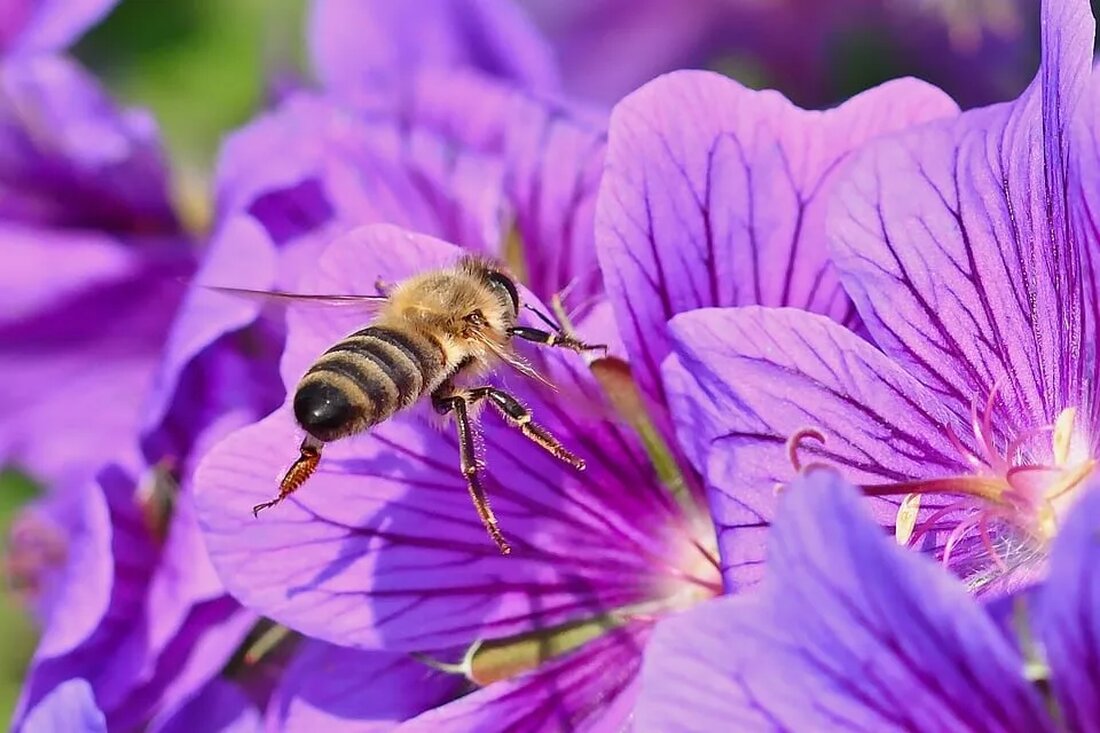Wild bees and their contribution to pollination
Pollination is a crucial process in the reproduction of many plants. Not only honey bees, but also other insects such as wild bees play important roles. In the following article we will explore the contribution of wild bees to pollination, as well as highlight their ecological importance and scientific significance. Importance of wild bees General overview Wild bees, also known as solitary bees, are a wide and diverse range of pollinators. They consist of around 20,000 species worldwide, with over 550 species having already been counted in Germany. In contrast to honey bees, which form colonies and live in colonies, wild bees live solitary lives. Ecological Significance Because they come in so many different forms and species...

Wild bees and their contribution to pollination
Pollination is a crucial process in the reproduction of many plants. Not only honey bees, but also other insects such as wild bees play important roles. In the following article we will explore the contribution of wild bees to pollination, as well as highlight their ecological importance and scientific significance.
Importance of wild bees
General overview
Wild bees, also known as solitary bees, are a wide and diverse range of pollinators. They consist of around 20,000 species worldwide, with over 550 species having already been counted in Germany. In contrast to honey bees, which form colonies and live in colonies, wild bees live solitary lives.
Ecological significance
Because they come in so many different forms and species, wild bees are able to pollinate a wide variety of plant species. In doing so, they help maintain biodiversity and ensure that a variety of plant species bear fruit and produce seeds.
Economic importance
Wild bees make a significant contribution to the pollination of cultivated plants. It is believed that about a third of the food we eat depends directly or indirectly on pollination by insects. The pollination services of wild bees are estimated at several billion euros per year.
Pollination by wild bees
How does pollination work?
Pollination is the process of transferring pollen - the male reproductive part of the plant - from the stamen to the stigma, the female reproductive organ of the plant. When a wild bee visits a flower to collect nectar, it unintentionally picks up pollen and carries it to other flowers. In this way, the bee enables fertilization and ultimately seed production of the plant.
Efficiency of wild bees
The efficiency of wild bees in pollination is impressive. Because of their size and hairiness, they collect more pollen and move it to the next flower more effectively than their domesticated counterparts. They also visit a wider range of plant varieties and, unlike honey bees, are also active in cooler weather.
Differences between wild bees and honey bees
Lifestyle and adaptability
While honey bees live as social insects in large colonies, most wild bees are solitary. Additionally, wild bees adapt better to different habitats and can live in a variety of environments, including both urban and rural areas.
Danger and protection
Wild bees are generally more susceptible to environmental changes and disturbances than honey bees. This is because they do not store up honey and work for immediate reproduction. Because of their ecological importance and endangerment, it is a high priority to ensure appropriate protection measures for wild bees.
The protection of wild bees
challenges
The challenges of protecting wild bees include the destruction of habitats, the increase in pesticides and other chemical influences, and climate change. These factors affect both the survival of wild bees themselves and their ability to pollinate.
Possible steps for protection
We can help protect wild bees by protecting and restoring their natural habitats. This could be creating wildflower meadows, maintaining hedges and trees or providing nesting aids. Avoiding pesticides and creating bee-friendly gardens are also helpful measures.
conclusion
Wild bees play a crucial role in many ecosystems. They are instrumental in the pollination of a wide variety of plants, including many crops that are important to our diet. Even if they are often overshadowed by their well-known relatives, the honey bees, their importance for nature and our agriculture should not be underestimated. To protect them and ensure their contribution to pollination, increased awareness and committed conservation measures are required.

 Suche
Suche
 Mein Konto
Mein Konto
